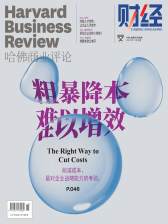- 给这本书评了5.0
Emily Field, Bryan Hancock, and Bill Schaninger page 061Organizations have long seen middle management as ripe for cutting whenever times get tight, and the current moment is no exception. The authors believe that this is a costly mistake. Human capital, they say, is at least as important as financial capital, and middle managers, who recruit and develop an organization's employees, are the most important asset of all—essential to navigating rapid, complex change. They can make work more meaningful, interesting, and productive, and they're crucial for true organizational transformation. But if managers are to fulfill this promise, leaders must reimagine their roles, push to more fully understand their value, and train, coach, and inspire them to realize their potential as organizational linchpins.
转发转发同时评论快速转发评论16分享「微信」扫码分享给这本书评了4.0行话在职场中,使用大家都理解的行话,如初创企业的创始人喜欢说的 “战略调整”,零售商喜欢说的 “全渠道”,团队整体更喜欢用的个人化代词,比如 “我们” 或 “我”,而不是更显疏远的 “他们”,就 “可以提升对话效率,拉近彼此距离,提升大家对集体的归属感”。这种做法可以提升组织成员的信任感和归属感,甚至增加升职的可能性。但如果追求创造性或想要打造记忆点,这种行话的效果有时就没那么好了。比如那些平淡乏味的营销文案或缺乏新意的口号,就很容易被人遗忘。而如果我们能将新奇的词汇以独特的方式组合在一起,则更容易给人留下深刻印象。音乐剧《汉密尔顿》之所以大受欢迎,就是因为突破了剧院观众习惯的风格。
转发转发同时评论快速转发评论赞分享「微信」扫码分享

 电子书
电子书哈佛商业评论(月刊 2023年07期)
本期重点文章《内部人才市场,让企业人尽其才》《想要求助口难开》《初创企业怎样少烧钱?》。

